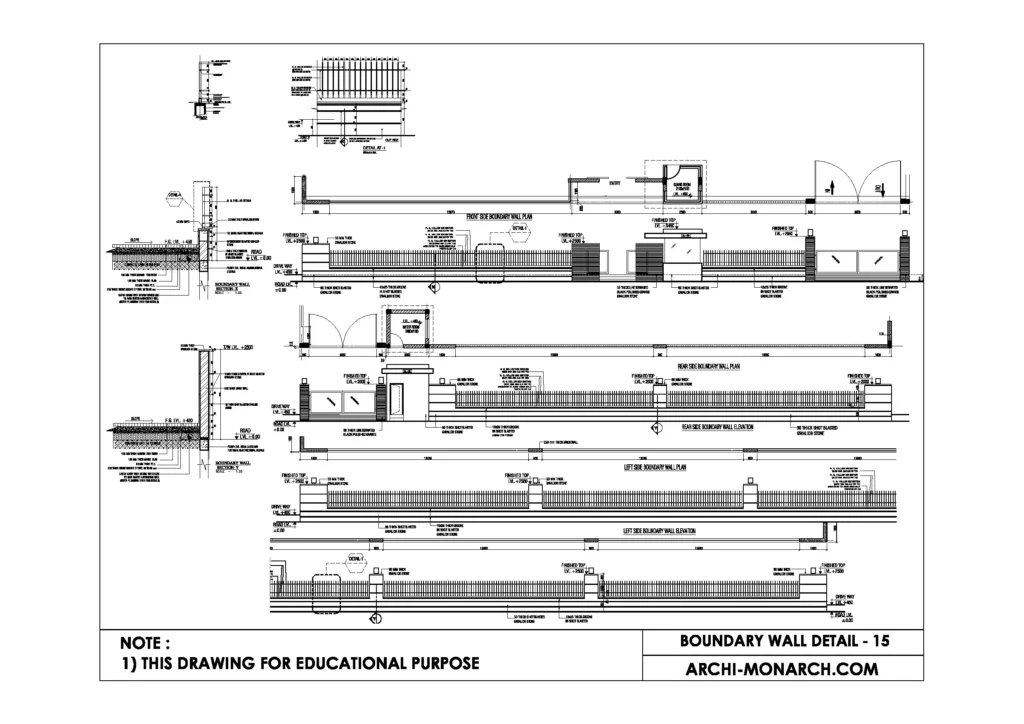A boundary wall is a wall that is used to separate or mark the boundary of a property. It is typically constructed along the perimeter of a property to provide security and privacy, and may be made of a variety of materials such as brick, stone, concrete, or wood.
Boundary walls may also serve as decorative features or to block noise or wind. In some cases, they may be required by local regulations or building codes.
If you want to know about the landscape boundary wall detail or standard detail or miscellaneous detail, please click the link.
Image of boundary walls detail and downloadable (in DWG) link below

Boundary walls detail drawing – 15
A boundary walls detail drawing is a technical drawing that provides detailed information about the construction of a boundary wall.
It typically includes information about the materials and methods used to construct the wall, as well as dimensions, details about foundations and footing, and any special features or considerations.
Boundary wall detail drawings may be used by architects, engineers, contractors, and other construction professionals to plan and execute the construction of a boundary wall.
They may also be used by building inspectors and other regulatory authorities to ensure that the wall is being built in accordance with relevant codes and standards.
Here are a few more points about boundary walls:
- Boundary walls can serve a variety of functions, including providing security and privacy, blocking noise or wind, and marking the boundary of a property.
- They may be made of a variety of materials, such as brick, stone, concrete, or wood, and can be designed in a variety of styles to match the architectural style of the property.
- Boundary walls may be required by local regulations or building codes, and may need to meet certain standards in terms of height, materials, and other factors.
- In some cases, boundary walls may be topped with fences, railings, or other features to provide additional security or decorative elements.
- Boundary walls may need to be maintained over time, including repairs and replacements of damaged or worn materials.
Our tips to help you improve your architectural boundary wall detailing.
